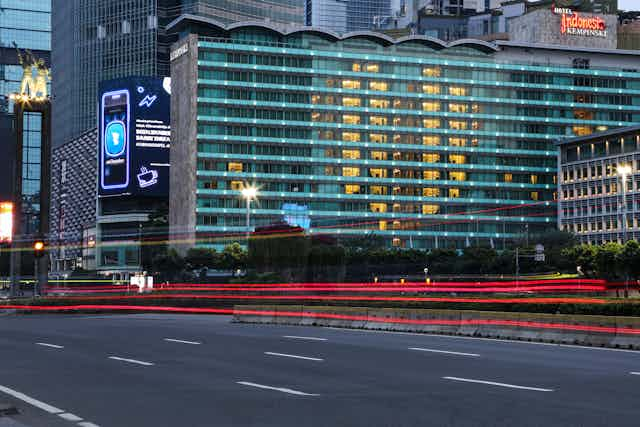With more than 3 million people infected with the coronavirus worldwide, the COVID-19 pandemic provides two important and valuable lessons about the link between health research and public policy.
First, we need political leaders who are responsive and believe in science. Second, government policies should inspire the public to take part in the fight against COVID-19.
In most countries, there are no signs that COVID-19 have reached its apex. A third of the world’s confirmed cases are now in the United States. Even though the US has an advanced health system and a large budget for science and technology, the number of infections continues to grow, along with the death toll.
A critical variable in tackling SARS-CoV-2 is the kind of leadership provided by national leaders. New Zealand, for instance, was this week able to begin easing its lockdown.

This is our weekly round-up of expert information about the coronavirus.
The Conversation, a not-for-profit group, works with a wide range of academics across its global network. Together we produce evidence-based analysis and insights. The articles are free to read – there is no paywall – and to republish. Keep up to date with the latest research by reading our free newsletter .
This is the eighth weekly round-up. We, the global network health editors of The Conversation, summarise the articles that have been written by experts related to COVID-19.
Protecting vulnerable groups
Coronavirus is transmitted through droplets from an infected person’s coughs and sneezes. People confined either in detention centres or living with other people in cramped homes are at risk of infection due to the difficulty of achieving one to two metres of physical distancing.
Protecting refugees. There are 1,400, people in immigration detention in Australia. Claire Loughnan and colleagues from the University of Melbourne consider a number of strategies from detention alternatives and social-distancing mechanisms in detention, to screening detained persons and detention staff to protect them.
Protecting migrant workers. Around 60,000 migrant workers in Canada who work in the agricultural sector live in small houses with many residents. It’s difficult for them to keep their distance. But without their work, the food supply will cease throughout the country. Tanya Basok and Glynis George from the University of Windsor write that these workers’ housing arrangements need to be rethought.
Protecting the elderly. In South Africa, older adults have an essential role in care and the economy, so if they are infected it will have a chain impact on their families. Research by Alexandra Parker and Julia de Kadt from Gauteng City-Region Observatory shows that because the majority of people aged 60 years are heads of households, economic and social intervention by the government must be fast and on target.
Light at the end of the tunnel?
Self-isolation, regional quarantine and working from home for weeks due to this virus can cause acute fatigue and loneliness. But there does seem to be hope that more restrictions may be lifted soon. Some of our authors have considered the positives and look to how lockdowns can move to a new phase.
Fight anxiety with an optimistic attitude. Professor of Biology Ian Boyd from the University of St Andrews offers five reasons why we need to be optimistic in facing the pandemic.
How cities should prepare for reopening. Roger Patulny and colleagues from the University of Wollongong and the University of Sydney put forward four strategies to rebuild social connectivity and emotional well-being in cities after restrictions are lifted.
Inequality
Although coronavirus can attack all social groups, poor people suffer far more.
Tests for all in Indonesia. I Nyoman Sutarsa from the Australian National University and Atin Prabandari from Gadjah Mada University explain why discrimination in access to COVID-19 testing, which prioritises the upper middle class and officials in Indonesia, must end.
Rural poor in the southern United States. In the midst of plans to reopen the American economy, rural residents who commute to work in cities and transportation centres are more vulnerable to exposure to the virus and can spread it to populations that are already at risk. Anne Cafer and Meagen Rosenthal of the University of Mississippi say, in the short term, states in the south need to increase their testing for coronavirus cases, to prevent greater transmission.
The role of political leaders
Presidents, prime ministers and health ministers are at the forefront in controlling the spread of COVID-19.
New Zealand stays vigilant. After four weeks of the most stringent lockdown in the world, New Zealand now records more people recovering from COVID-19 than new infections. But the threat has not ended as the country relaxes its lockdown. Arindam Basu from the University of Canterbury says entry from overseas will remain closed and a combination of testing and contact tracing will be increased to eradicate COVID-19.
Ecuador. Compared to Brazil and Venezuela, Ecuador has been more proactive in responding to the coronavirus epidemic, write Dennis Altman from La Trobe University and Juan Carlos Valarezo from Pontifical Catholic University of Ecuador. But even though the death rate is starting to slow, the spectre unburied bodies at home and in hospital alleyways hangs across the nation and Latin America.
As long as drug treatments and vaccines are yet to be available, control of COVID-19 will depend on political leaders creating evidence-based policies and on their ability to inspire trust and promote behaviour that can combat the virus.


